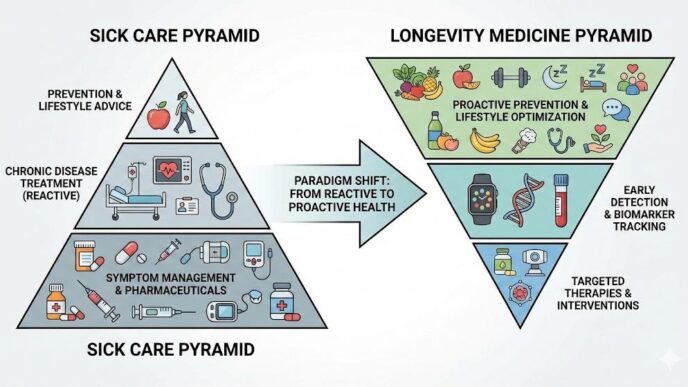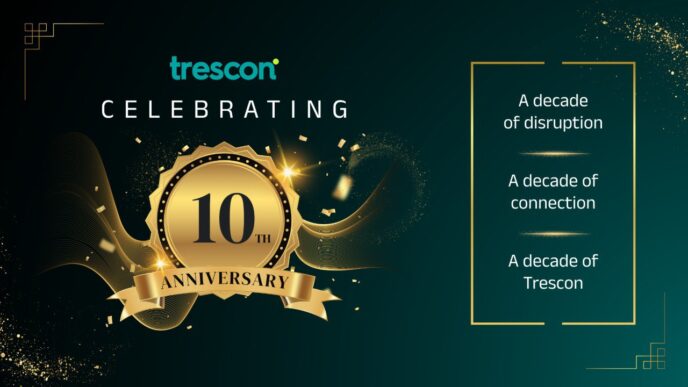The Federal Trade Commission (FTC) is really shaking things up with its approach to big businesses. It’s not just about what they’ve done wrong, but also about stopping them from getting too big in the first place. This new way of doing things, especially under Lina Khan, has everyone watching. Now, with a big case possibly coming against Amazon, people are wondering what this means for regular shoppers and the whole online market. It’s a big deal, and the outcome could change how we all buy stuff online forever.
Key Takeaways
- The FTC is changing how it handles big companies, focusing more on stopping mergers before they happen.
- They’re trying out new legal ideas, like stopping a company from buying another even if they don’t directly compete right now, just in case they might in the future.
- Even when the FTC loses a court case, they sometimes see it as a small win because it helps them test out their new legal ideas.
- The old rule about only stopping mergers if they hurt consumers directly is being challenged by the FTC.
- The upcoming FTC vs. Amazon case is a huge moment that could set new rules for all the big tech companies.
The FTC’s Evolving Role In Antitrust Enforcement
The Federal Trade Commission (FTC) is changing, and it’s not your grandpa’s FTC anymore. For decades, the agency has been a key player in regulating business practices, but under its current leadership, it’s taking a much more aggressive stance, especially when it comes to antitrust enforcement. It’s like they’ve decided to shake things up and challenge the status quo. The shift is noticeable, and businesses are definitely feeling the heat. It’s a whole new ballgame, and everyone’s trying to figure out the new rules.
Shifting Focus Under Lina Khan
Since Lina Khan took the helm, the FTC has really ramped up its antitrust efforts. There’s been a clear move towards scrutinizing mergers and acquisitions more closely. It’s not just about the big, obvious monopolies anymore; they’re looking at deals that might have seemed harmless in the past. The number of investigations has gone up, and the agency seems more willing to challenge deals that could potentially harm competition, even in subtle ways. It’s like they’re saying, "We’re watching you," to the business world.
Increased Scrutiny Of Mergers And Acquisitions
The FTC is really digging into mergers and acquisitions these days. They’re not just rubber-stamping deals anymore; they’re asking tough questions and demanding more evidence. This increased scrutiny means companies have to be prepared to justify their mergers and show how they won’t hurt consumers or stifle competition. It’s a much more rigorous process than it used to be, and it’s definitely making companies think twice before trying to merge. The FTC’s investigations have nearly doubled since 2021.
Moving Beyond Traditional Consumer Welfare Standards
For a long time, the "consumer welfare standard" was the guiding principle in antitrust cases. This meant that the FTC primarily focused on whether a merger or business practice would lead to higher prices or reduced quality for consumers. But now, the FTC is starting to look at a broader range of potential harms, including things like the impact on workers, innovation, and small businesses. It’s a more holistic approach that takes into account the overall health of the market, not just the immediate impact on consumers. The FTC is rejecting the dominant principle of the consumer welfare standard.
Novel Legal Theories In FTC Cases

The FTC isn’t just sticking to the old playbook. They’re trying out some new arguments in court, and it’s definitely shaking things up. It’s like they’re saying, "Hey, the world has changed, and antitrust law needs to keep up!" But these new approaches also come with risks. Are the courts ready to buy what the FTC is selling?
The Concept Of Potential Competition
One of the more interesting ideas the FTC is exploring is potential competition. Basically, they’re arguing that a merger could be bad even if the companies aren’t direct competitors right now. The idea is that one of the companies could have entered the other’s market in the future, and the merger eliminates that possibility. This is forward-looking and tries to anticipate harm before it actually happens. It’s a bit like saying, "This company could have been a contender!"
Challenges In Proving Future Harm
The big problem with arguing potential competition is that it’s all about what might happen. You’re not dealing with concrete evidence of existing harm; you’re trying to predict the future. That means the FTC needs to present a really strong case, showing that the company was likely to enter the market and that its entry would have actually increased competition. It’s a high bar to clear, and it requires a lot of speculation. It’s not enough to just say, "Well, they could have done it."
Judicial Reception Of New Antitrust Arguments
So, how are the courts reacting to these new theories? It’s a mixed bag. Some judges are open to hearing these arguments, recognizing that the digital economy requires a fresh look at antitrust principles. Others are more skeptical, sticking to the traditional view that antitrust law should focus on protecting consumers from immediate, demonstrable harm. The Meta-Within case, where the FTC argued that Meta’s acquisition of Within could stifle competition in digital fitness services in the future, shows the difficulty in getting courts to accept these arguments. The court wasn’t convinced that Meta had concrete plans to enter the fitness market. It’s clear the FTC is trying to reestablish the view that mergers causing harm in any sector should not be allowed.
High-Profile Losses And Their Implications
The FTC, under increased scrutiny, has faced some tough losses in antitrust cases recently. It’s worth taking a look at what these defeats mean for the agency and the business world.
The Meta-Within Acquisition Case
One notable case involved Meta’s attempt to acquire Within, a digital fitness company. The FTC argued that this acquisition would stifle digital fitness services competition in the future, especially within the metaverse. The FTC’s argument centered on the concept of potential competition, suggesting that Meta might have entered the fitness video market on its own. However, the court ultimately sided with Meta, finding that the FTC didn’t provide enough evidence to support its claims that Meta had concrete plans to enter the market.
FTC’s Stance On Court Losses
Despite the loss in the Meta-Within case, the FTC seems to be framing these defeats in a positive light. Lina Khan, the FTC chair, has suggested that even losses can be seen as wins if they keep certain legal arguments alive. The agency seems to be playing the long game, hoping to establish new precedents even if it means facing setbacks in the short term. It’s a bold strategy, but it’s also risky.
Impact On Business Community Sentiment
Regardless of how the FTC spins it, these high-profile losses have definitely made an impact on the business community. There’s a sense that the FTC is more aggressive and willing to challenge mergers and acquisitions, even if the legal basis is somewhat novel. This has created a degree of uncertainty and fear, particularly among tech companies that are frequent targets of antitrust investigations. Businesses are now more cautious about potential deals, knowing that the FTC is likely to take a close look and potentially challenge them in court.
The Consumer Welfare Standard Debate
Historical Dominance Of The Standard
For about 40 years, the consumer welfare standard has been the main way to judge if a business deal is okay. Basically, Robert Bork’s argument in his book said that antitrust laws should only stop things that hurt consumers. This view became super popular, and it meant that businesses could grow and merge unless it clearly made things worse for people buying stuff. It was all about keeping prices low and quality high for the average person.
FTC’s Rejection Of The View
Now, the FTC and the Justice Department are pushing back against this idea. They don’t think it’s the only thing that matters. They’re starting to believe that even if consumers don’t see a direct price hike, a merger can still be bad if it hurts competition in other ways. This is a big change from how things have been done for decades. It means they’re looking at a wider range of potential harms, not just the ones that hit your wallet right away.
Broader Definitions Of Competitive Harm
The FTC wants to go back to a time when any harm to any part of the market was a reason to block a merger. This includes harm to competitors, even if consumers don’t feel it directly. They’re arguing that a lack of competition can lead to less innovation and fewer choices down the road. So, even if prices stay the same for now, the FTC thinks a merger could still be bad if it makes the market less dynamic in the long run. It’s a much broader way of looking at bad business practices than just focusing on immediate price increases.
What The FTC vs Amazon Showdown Means
The FTC’s pursuit of Amazon is a big deal, no doubt. It signals a willingness to go after even the largest tech companies, and the outcome could reshape how online business is done. It’s a high-stakes gamble for the agency, but one they seem prepared to take.
Amazon As The Next Major Target
Amazon has become the poster child for modern antitrust concerns. The FTC’s decision to target them shows they’re not afraid to take on a giant. This isn’t just about one company; it’s about sending a message to the entire tech industry. The FTC alleges Amazon’s actions harm competition and consumers.
The Agency’s Preparedness For The Case
Is the FTC ready for this fight? That’s the million-dollar question. They’ve been building their case for a while, gathering evidence and developing legal strategies. But Amazon has deep pockets and a team of top-notch lawyers. It’s going to be a long, hard battle, and the FTC needs to be prepared for every possible scenario. The FTC has been bringing cases based on novel theories, cases where the courts have not had much experience with the theories of harm that are being thrown out there.
Potential Precedents For Tech Giants
This case could set major precedents for how antitrust laws are applied to tech companies. If the FTC wins, it could lead to significant changes in how companies like Amazon operate. It might even encourage other regulators to take similar action. A loss, on the other hand, could embolden tech giants and make it harder to regulate them in the future.
Risks And Rewards For The FTC
The FTC’s recent actions are a bit like a high-stakes gamble. They’re swinging for the fences, but there’s a real chance they could strike out. It’s a period of big changes, and with that comes both the potential for major wins and the risk of some serious setbacks.
The Perceived Losing Streak
There’s no getting around it: the FTC has faced some tough losses in court recently. Some critics are saying that under Lina Khan’s leadership, the agency is bringing cases that are just too difficult to win. It’s like they’re picking fights they can’t finish. This perception of a "losing streak" can hurt the agency’s credibility and make businesses less likely to settle, leading to even more courtroom battles. The FTC’s main functions are to penalize companies that behave badly, like by lying to consumers, and to stop companies from buying up other companies in a way that hurts competition.
Bold Strategies For Overhauling Monopolies
But here’s the thing: the FTC isn’t just trying to win individual cases; they’re trying to change the whole game. They’re pushing for a complete overhaul of how we think about monopolies, and that means taking some risks. These bold strategies, like challenging mergers based on "potential competition," are designed to reshape the market in the long run. It’s like they’re saying, "Even if we lose this battle, we’re setting the stage for a bigger victory down the road."
Long-Term Goals Versus Immediate Outcomes
The FTC’s focus isn’t just on immediate wins and losses. They’re playing the long game. They’re trying to establish new precedents and shift the legal landscape to be more favorable to consumers and competition. This means that even if they lose a case in the short term, they might still consider it a success if it advances their long-term goals. It’s a bit like planting a tree; you might not see the fruit right away, but eventually, it will bear results. The FTC wants to reestablish the view that if a merger causes harm in any sector, including just to your competitors, then the businesses should not be able to merge. It’s impossible to have one objective scorecard for the FTC. It is clear the FTC has managed to instill a degree of fear in the business community about new mergers.
Impact On Consumers And The Market
Protecting Consumers From Bad Business Practices
The core of the FTC’s mission, really, is about making sure companies play fair. It’s easy to forget that behind all the legal jargon and courtroom drama, there are actual people who could get hurt by shady business moves. Think about it: if one company gets too powerful, they can start raising prices, lowering quality, or just plain stifling innovation because they don’t have to worry about competition. The FTC steps in to prevent that, aiming to keep the market competitive and, ultimately, protect our wallets and choices. It’s not always a perfect system, but the idea is to stop companies from taking advantage of consumers.
Fostering Competition In Digital Markets
The internet has changed everything, and the FTC is trying to keep up. It’s not just about brick-and-mortar stores anymore; a lot of the action is happening online, where companies like Amazon have a huge presence. The challenge is that digital markets can be winner-take-all, where one company dominates and it’s hard for anyone else to break in. The FTC’s job is to make sure there’s still room for new players and that the big guys aren’t using their power to squash the competition. This could mean looking at how companies use data, how they treat smaller businesses that rely on their platforms, or whether they’re unfairly favoring their own products. The Financial Technology Association’s criticism highlights the need for balance.
The Future Landscape Of Online Commerce
What happens with the FTC’s cases against companies like Amazon could really shape how we shop and interact online in the future. If the FTC wins, it could send a message that even the biggest tech giants aren’t above the law and that they need to play fair. This could lead to more competition, more innovation, and better deals for consumers. On the other hand, if the FTC loses, it could embolden these companies and make it even harder to challenge their dominance. It’s a high-stakes game, and the outcome will have a big impact on the FTC’s evolving role in antitrust enforcement and the future of online commerce. It’s not just about one company; it’s about setting the rules of the game for the entire digital economy.
Conclusion
So, what does all this mean for us, the regular folks who just want to buy stuff online? Well, the FTC going after Amazon is a big deal. It’s not just about Amazon, really. It’s about how much power these huge companies should have. If the FTC wins, it could change how Amazon does business, maybe even making things a bit fairer for smaller sellers and giving us more choices. But if they don’t, then Amazon, and other big companies, might just keep doing what they’re doing. It’s a complicated situation, and honestly, nobody knows exactly how it’s all going to shake out. But one thing’s for sure: this whole thing is going to be watched closely, because it could set a new path for how big tech companies are handled in the future.
Frequently Asked Questions
What does the FTC do, and how has its role changed recently?
The FTC is like a watchdog for businesses. It has two main jobs: first, to stop companies from doing bad things like lying to customers, and second, to make sure that when big companies buy smaller ones, it doesn’t hurt fair competition. Lately, under Lina Khan, they’ve been really focused on the second part, especially looking closely at company mergers.
What are ‘new legal theories’ in FTC cases?
The FTC is trying out new ideas in court. One big idea is called ‘potential competition.’ This means they argue that even if a company isn’t directly competing now, a merger could stop it from becoming a competitor later. It’s a new way to think about harm, and judges are still learning about it.
Has the FTC been losing cases, and what does that mean?
Yes, the FTC has lost some big cases, like the one involving Meta and a fitness company called Within. Even though they lost, Lina Khan said it was still a win because the judge didn’t completely shut down their new ideas. These losses make some businesses nervous about future mergers, but the FTC sees them as steps toward changing how monopolies are handled.
What is the ‘consumer welfare standard,’ and why is it being debated?
For a long time, the main rule was that a business deal was okay unless it clearly hurt customers by making things more expensive or worse. This was called the ‘consumer welfare standard.’ But now, the FTC thinks this rule is too narrow. They believe a deal should be stopped if it hurts competition in any way, not just if it directly harms consumers.
Why is the FTC’s case against Amazon so important?
The FTC is getting ready to take on Amazon, a very big tech company. This is a huge case for them. If they win, it could set new rules for how all big tech companies operate. It’s a major test of the FTC’s new ideas and its ability to challenge powerful businesses.
What are the risks and rewards for the FTC in these big cases?
The FTC is taking big risks with its new approach. Some people say they are losing too much, but the FTC believes they are trying to fix big problems with monopolies. Their goal is to change the market for the long run, even if it means some tough battles now.














